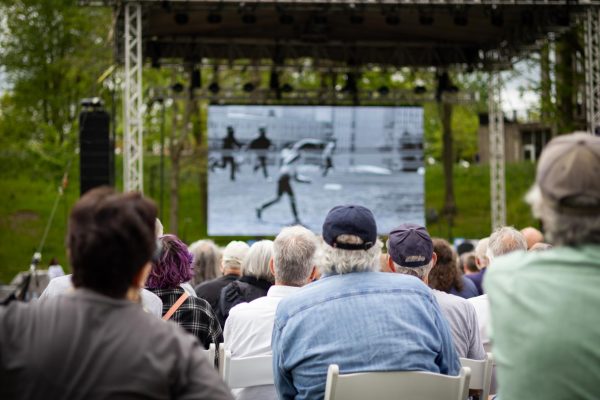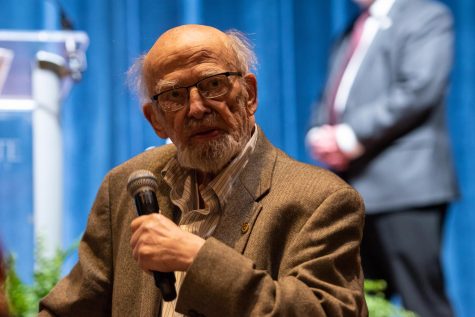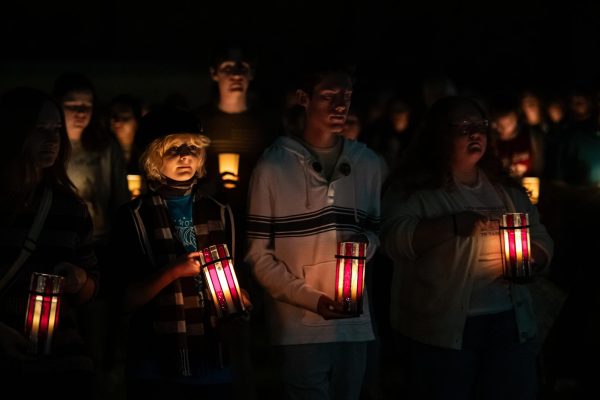TV2: It’s not just black and white
March 13, 2012
var so = new SWFObject(‘http://www.staterinteractive.com/player.swf’,’mpl’,’665′,’450′,’9′);
so.addParam(‘allowscriptaccess’,’always’);
so.addParam(‘allowfullscreen’,’true’);
so.addParam(‘flashvars’,’&file=Adoption_Reyes_PKG.flv&image=http://www.staterinteractive.com/photos/spring11/0131tv2.jpg&frontcolor=6666FF&lightcolor=EEEEEE&skin=http://www.staterinteractive.com/snel.swf&streamer=rtmp://flashmedia.kent.edu/fms-jmc/tv2′);
so.write(‘tv2news’);
Anita and Joe Miller have four children all under the age of eight. They are your traditional American family except that Joe is a stay-at-home dad. There is, however, a much more obvious difference that attracts quite a bit of stares. Three of their children are black.
Shortly after the Millers married, they tried to conceive a child of their own. After three years of trying with no success, they decided to look into adoption.
“Originally, I would say they ask you what race you’re open to and we had said bi-racial but not full African American,” Anita said. “But then the agency had called and talked to us, and we kind of thought about it and thought that that was a really silly distinction to make.”
Child psychologist Dr. Angela Neal-Barnett says that things as seemingly insignificant as hair become extremely important when raising a black girl.
“Black hair is a really interesting piece because not only is it different physically, but it’s different psychologically,” Neal-Barnett said. “And so understanding how to do hair so you don’t have to hear throughout your childhood and adolescence ‘Why is that girl’s hair always a mess?'”
The Millers said learning how to do black hair was an experience. Joe says he’s not as good at it as his wife is yet.
“I’ve been given a lot of cards by older women to do hair,” he said. “Usually, it’s on a day when I’ve done Eleanor’s hair or something like that,” he laughed.
But there are other issues that are much more important that have yet to come. African American boys, like his son Isaac, face greater a challenge to be accepted by society when they’re men, challenges that Joe has never had to even think about.
“I know it’s coming down the line,” Joe said. “If Isaac and Aaron go into a mall, Isaac’s going to get more notice. I need to start learning how to talk to Isaac about that.”
It’s these challenges that make interracial adoption so controversial. How do you teach a black child what it means to be black in America? How do you teach a young black girl to be confident in who she is?
The Millers acknowledge that, like other parents, they’re going into unchartered territory. But they believe that their love for their children is much stronger than the color of their skin.
Contact Jeannette Reyes at [email protected].
























